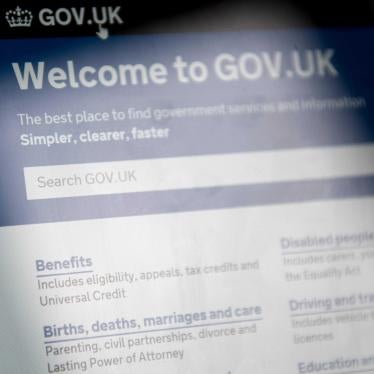Last week, Russian legislators adopted a law obliging banks and state agencies to enter their clients’ biometrics, including facial images and voice samples, into a central biometrics database. The measure is set to take effect in March 2023 and does not require banks to seek clients’ consent before handing over their data.
In what appears to be a coordinated effort in anticipation of the new regulation, Russia’s Central Bank is already planning to prohibit individual branches from allowing clients to open new accounts or apply for loans via mobile apps without biometric data authentication. The move is likely designed to boost biometric data collection which would ultimately be shared with the government.
The expansion of biometrics collection by the government, through banks and state agencies, drastically increases the threat of surveillance for people living in Russia.
Russian authorities have long used biometric data for artificial intelligence-powered facial recognition to surveil and prosecute peaceful protestors and other critics. With the full-scale invasion of Ukraine in February this year, facial recognition technology became one of the government’s tools in its effort to stifle anti-war protests.
Authorities created the central database of biometric data in 2018 in an attempt to expand government control over biometrics. The state claimed the database would facilitate authentication of online banking users and invited banks and their clients to voluntarily feed biometric data into the system. But the new law makes this process obligatory.
Russian law on personal data requires individuals’ consent for collection and processing of their biometrics. While over the years Russian banks collected biometric data on millions of clients, the vast majority of these clients have been reluctant to grant permission to share their data with the government.
In May, authorities demanded Russia’s four largest state-owned banks hand over their clients’ biometrics to the government. While some of these banks said they were willing to comply, they still needed to obtain their clients’ consent. As of March 2023, when the new law enters into force, obtaining such consent will no longer be an issue.
In true Orwellian spirit, Russian authorities are building a “Big Brother Is Watching You” state, methodically sacrificing people’s rights to their warped quest for total control.










